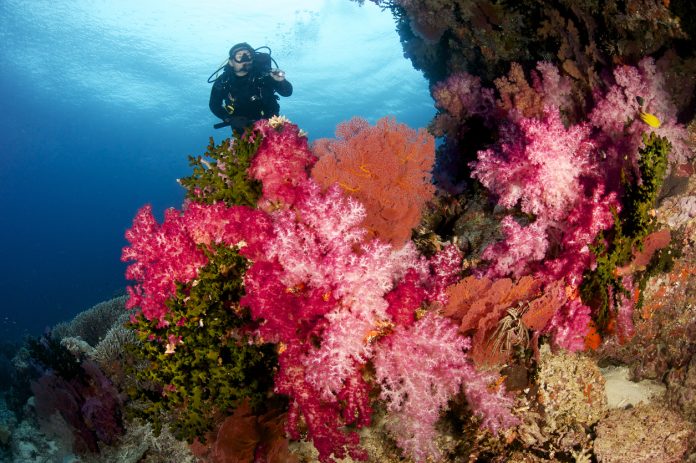An international team of scientists has unveiled a remarkable 627-year coral record from the Fijian archipelago
Led by researchers from the University of Leicester, this study uses the capabilities of giant coral colonies to provide a detailed insight into historical ocean temperatures in the western Pacific Ocean.
Change in ocean temperatures
Using the massive coral species Diploastrea heliopora as a “living temperature sensor,” the scientists reconstructed sea surface temperatures dating back to the year 1371.
This coral, with its slow growth rate of 3-6mm per year, captures changes in ocean temperature by analysing the ratio of Strontium to Calcium in its skeletal structure. Lower ratios indicate higher temperatures, offering a continuous record of climate variations over centuries.
The current ocean warmth in the Fijian archipelago is the highest observed in 653 years. This long-term perspective reveals unprecedented warming trends in recent decades, exacerbated by human-induced climate change.
The study shows the crucial role of the Pacific Ocean in global climate dynamics, influencing weather patterns across vast regions over decades.
Changes in Pacific Ocean temperatures not only impact marine ecosystems but also have far-reaching consequences for rainfall patterns and cyclone development in the South Pacific Islands.
The Pacific Ocean’s temperature
Historically, the Pacific Ocean’s temperature gradients have modulated climate phenomena like the El Niño Southern Oscillation, which affects weather patterns worldwide. However, the researchers note that recent warming trends have led to decreased temperature gradients, intensifying the impacts on Pacific Island nations.
Juan P. D’Olivo, lead author from Universidad Nacional Autónoma de México, highlights the limitations of short instrumental records in fully capturing the complex interactions between anthropogenic warming and natural climate variability.
The coral record fills crucial gaps by providing a continuous, high-resolution perspective on ocean temperature trends.
Professor Jens Zinke, co-lead of the study, emphasises the urgent need for global action to reduce greenhouse gas emissions. He warns that without swift mitigation measures, ecosystems and communities will face unprecedented challenges due to ongoing ocean warming and its cascading effects on atmospheric circulation.











